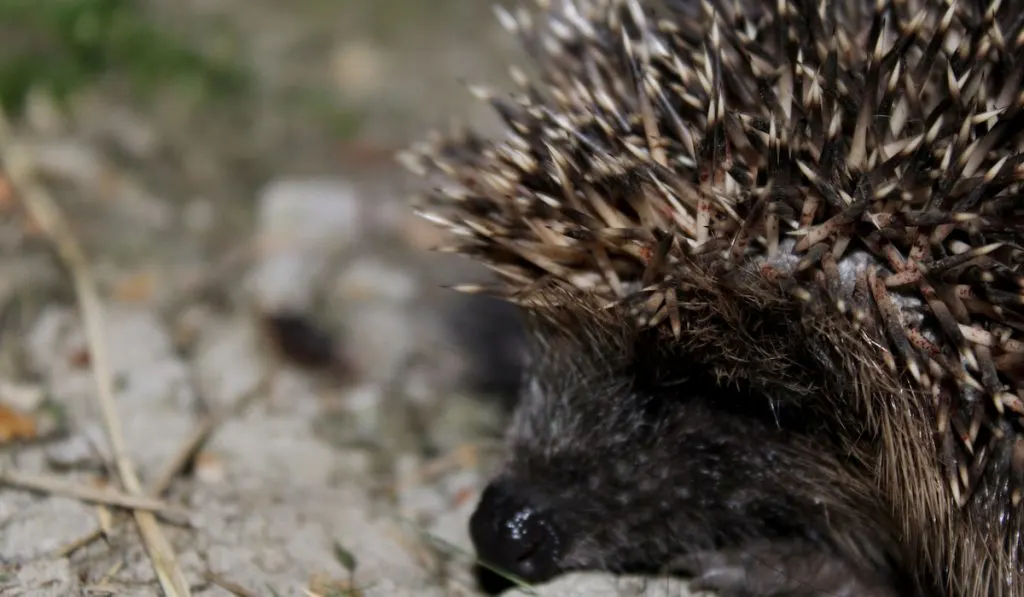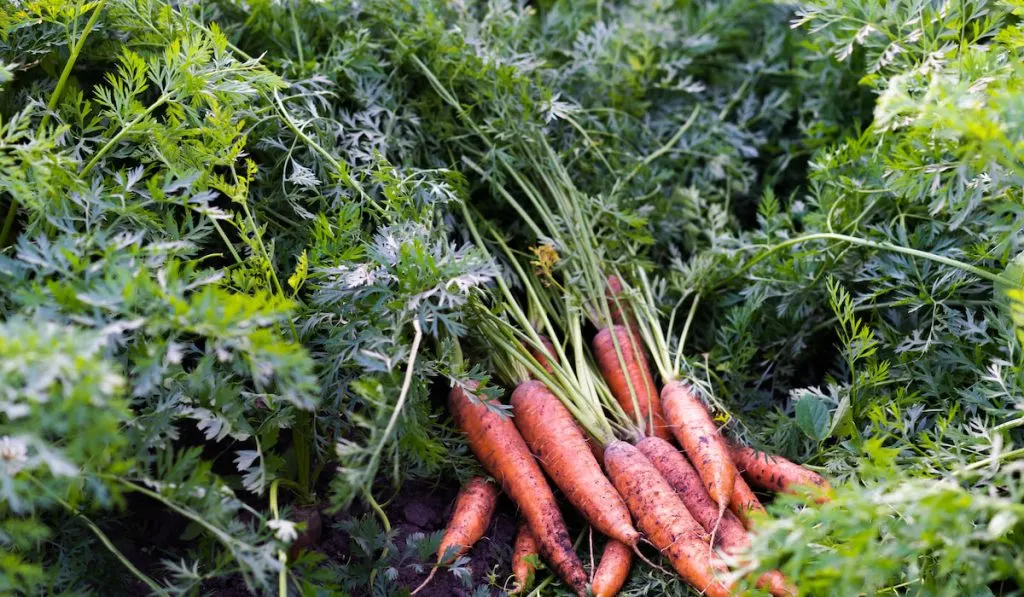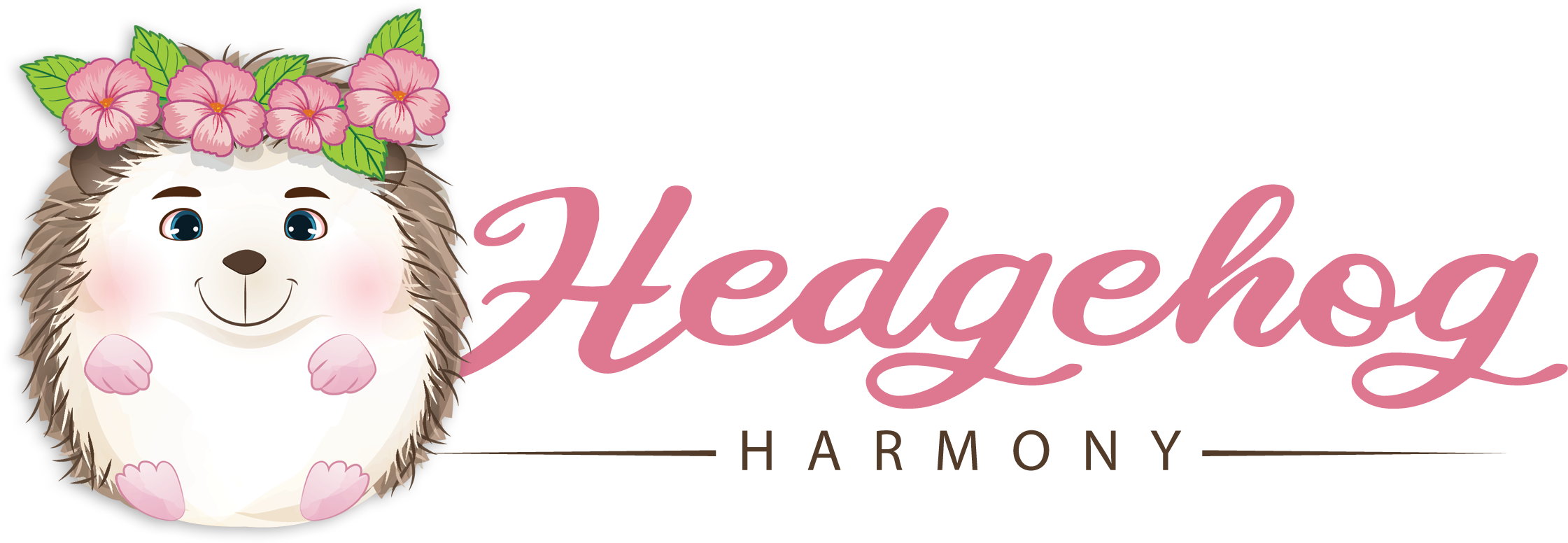Hedgehogs are active, adorable, and tiny pets that need extensive care and love. You might be worrying about what to serve your hedgehog to give it a proper diet full of nutrition and value.
Today, we are talking to you about carrots and how they fulfill the much-needed nutrition and also make the hedgehogs happy.
Can hedgehogs eat carrots?
Carrots are full of nutritional benefits and are quite healthy for hedgehogs. They are safe to eat and are rich in vitamin A. You can add carrots in their meals twice a week, but be sure to include other foods also as feeding carrots alone can increase their vitamin A intake to toxic levels.

Carrots are one of the favored foods hedgehogs like to be served. However, there are certain recommendations you should know before giving them delicious carrot treats.
Vitamins and Minerals
Carrots are rich with vitamins and minerals, some of which are listed below:
- Vitamin A: If you think about carrots, the first thing that comes to mind is vitamin A. It helps to improve eye sight so that your hedgie can easily find insects to feed itself.
- Vitamin K1: Vitamin K1 added with calcium is significantly beneficial for regular bone growth and blood coagulation.
- Potassium: An essential mineral, potassium is important for regulating blood flow, and keeps the body active.
- Beta carotene: Abundantly found in orange carrots. It is a precursor to the vitamin A listed above. It is better assimilated when the carrots are boiled.
- Vitamin B6: This water-soluable vitamin helps with blood formation, bone strength, and helps convert food into energy. It keeps hedgehogs more healthy and active.
Carbohydrates
Carrots are composed of 86-95 percent water and 10 percent carbohydrates. Carbohydrates have two major components – sugar and starch.
- Sugar, especially in the form of glucose, gives a valuable amount of energy to your hedgie to play, run, and perform daily activities with full vigor.
- Starch helps in building muscular energy and reduces weakness and fatigue in hedgehogs.
- It may protect the hedgie from heart diseases and reduce the risk of strokes.
- It also regulates blood glucose levels and releases cholesterol from the body via feces.
Fiber
Carrots are rich in fiber, so they have magical benefits for your hedgie. Some are given below:
- Relieving constipation and preventing intestinal problems are often considered the superpower of fibers.
- Helps in easy digestion and feeds the friendly bacteria in the stomach, which helps to improve health.
- Soluble fibers can lower blood sugar levels by slowing down digestion of sugar and starch.
- Helps to reduce cholesterol levels in the blood and eases blood flow.
- Helps in bowel movements and eases any kind of abdominal pain, vomiting, or bloating.

Benefits of Carrots:
Carrots are a perfect treat for hedgehogs—rich in nutrients, low in fats, and they taste yummy. Carrots provide adequate water to help organs perform their activities properly. Carrots include an average of 90 percent water, while general foods usually include 60 percent water.
The vitamin A found abundantly in carrots is essential to maintaining your hedgie’s eyesight. Deficiency of this vitamin can cause weak eyesight and even night-blindness
Carrots can decrease calorie intake in subsequent meals. Carrots are beneficial for overweight hedgies as they are a low-calorie food that helps to decrease weight while providing full energy and nutrition.
Carrots are rich in fiber that can be very effective in battling constipation. If you notice that your hedgehog has not pooped in the cage or litter pan, give them some carrots. They are beneficial for the digestive system and help their body to utilize food properly. Fiber aids the process of food digestion.
Carrots are a wonderful treat because they boost the immune system and strengthen bones. Your pet will play more and feel better.
Although red carrots are also a nutritious choice, orange carrots have an increased level of calcium and phosphorous which is vital to keep your hedgie healthy and fit.
How to Prepare Carrots
Since they are produced in the soil, you may have to scrub off any dirt or peel the carrots with a knife first. Then rinse them off under running water to remove any traces of pesticide.
Eating raw carrots is dangerous for hedgie as they are hard to chew before swallowing. Because of this, raw carrots may pose a choking hazard.
Therefore, it is not advisable to serve your pet raw carrots at all. You can only serve them steamed, half-boiled, or fully-boiled carrots.
Here are a few ways you can prepare a treat for your hedgehog:
Steam Roasted:
Steaming will make the carrots more delicious and soft as well. A common reason why steaming is preferred over boiling is because the nutrition value is not lost during steaming.
Slightly Boiled:
Your hedgehog may enjoy the crunch and juice of raw carrots, but it is better to give them a light boil to make them softer and prevent choking. This method makes the carrots safer to consume while retaining their full nutritional power.
Properly Boiled Carrots:
If you find that your hedgehog is having difficulty in eating half-boiled carrots, then fully boil them without overcooking. Certain vitamins and essential minerals can be destroyed when carrots are overcooked, decreasing the nutritional value for your pet.

Organic and Conventionally Grown Carrots
Organic carrots are more beneficial for your pet’s health as compared to conventionally grown carrots.
Conventional carrots usually contain pesticide residues that are harmful to animals and can contribute to health issues, while organic carrots are free from pesticides and safer to use.
Studies have found that there is little difference between them when it comes to measuring their nutrition—non-organic carrots have the same amount of vitamins and minerals, just be sure to wash and cook them properly.
Some Things to Remember
Feeding only one food is not a wise choice as your hedgehog can experience deficiencies in other important minerals that are not in carrots. Therefore, providing carrots 3-4 times a week is sufficient for better functioning of the digestive system and stronger bones.
Studies have also found that an excessive quantity of vitamin A can cause toxicity. A balanced diet that includes the six main nutrient groups—minerals, carbohydrates, proteins, lipids, vitamins, and water—is always preferred.
You can also prepare treats for your hedgehog such as bananas, peeled apples, and cooked eggs. A special treat is something your hedgie will always be ready to eat.
Resources
- https://pocketpetsforever.com/can-hedgehogs-eat-carrots/
- https://www.webmd.com/food-recipes/benefits-carrots
- https://www.hedgehogworld.com/what-do-hedgehogs-eat/
- https://animals.mom.com/vegetables-can-hedgehogs-eat-1971.html
- https://www.healthline.com/nutrition/foods/carrots
- https://www.arkwildlife.co.uk/blog/hedgehog-metabolic-bone-disease-mbd/
